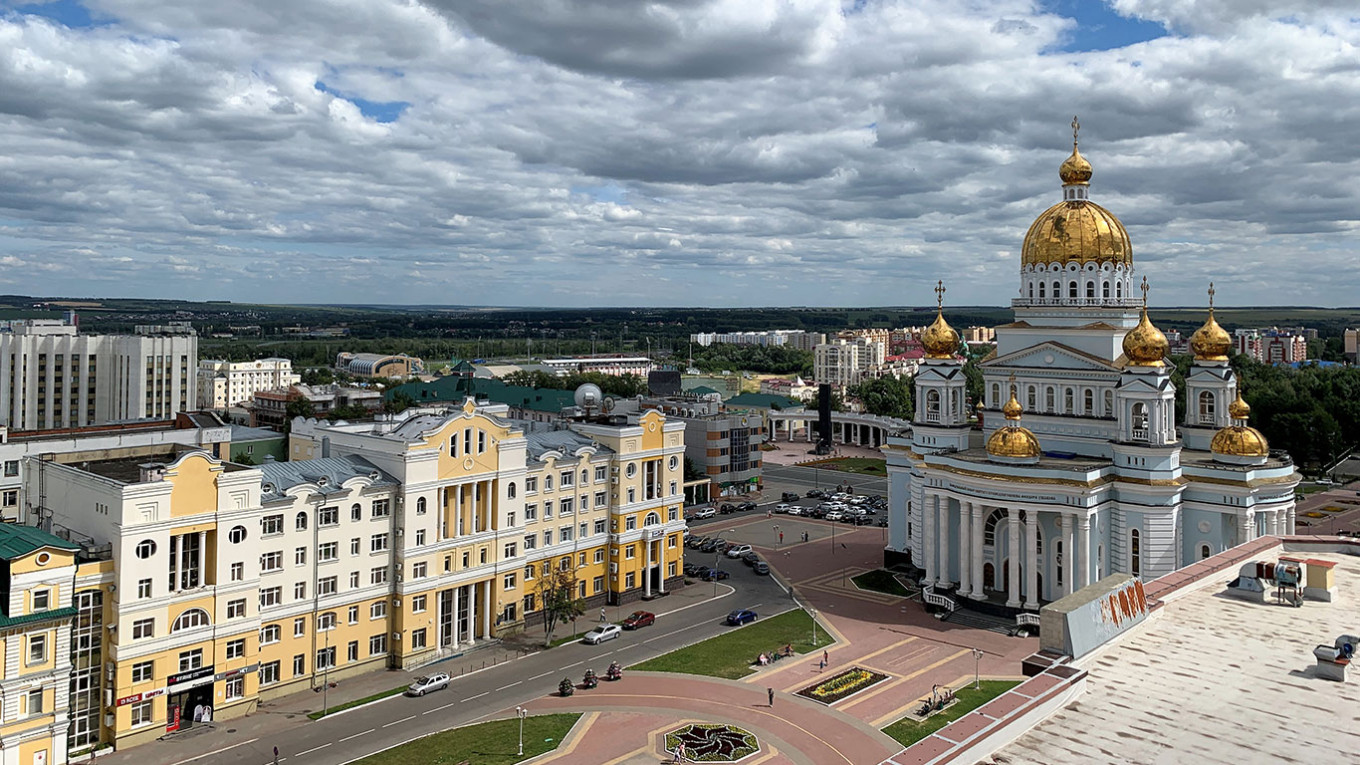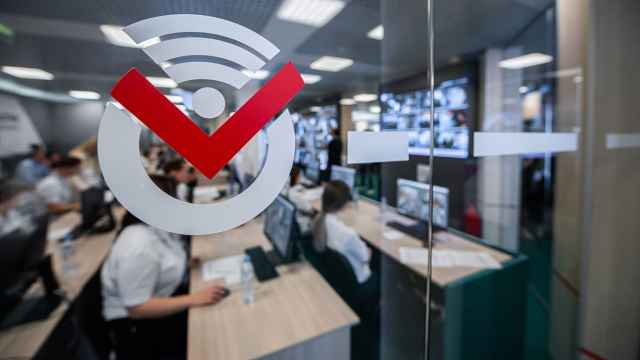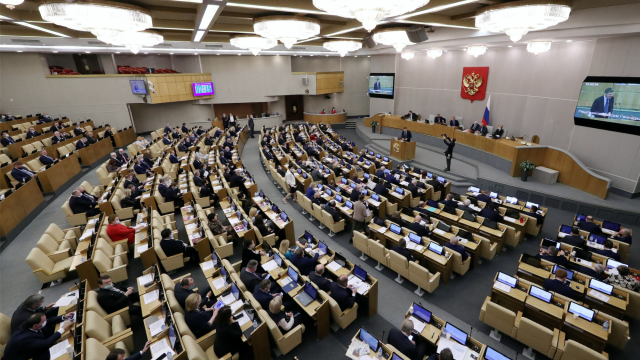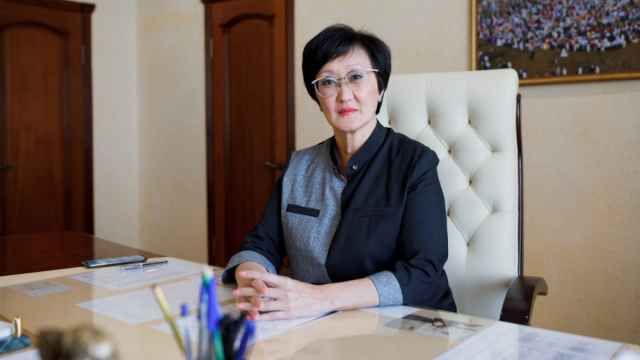SARANSK, MORDOVIA — For barbershop owner Oleg Kechin, the first 18 months of the coronavirus pandemic were a breeze. After shutting for just four weeks last April, his Barabas chain has blossomed, opening new stores in nearby cities, a first franchise in the Moscow suburbs and taking on new staff.
“Since that first month, everything’s been good. We’d already recovered to our usual level of business by the end of the year,” he told The Moscow Times in an interview in one of his barbershops in the center of the Volga region city of Saransk.
“Thanks to the government’s anti-crisis support, I even opened a new outlet. Now we’re growing fast.”
Kechin, who sits on various local government advisory bodies and business associations, is exactly the kind of entrepreneurial success story Russia’s leaders would like to hear more of in the run-up to this month’s parliamentary elections.
But optimism among the country’s small business owners — a traditional source of opposition to the Kremlin because of what they see as Russia’s meddling and oppressive bureaucracy — is hard to come by nationwide.
Battered by the coronavirus pandemic, most say they felt abandoned or left with only modest support at a time of deep crisis. The problems and discontent run deeper than just anger at the pandemic response. A recent poll, conducted by the government’s own business ombudsman, found eight in 10 business owners believe running your own company is a “dangerous” vocation in modern Russia.
Russian President Vladimir Putin himself appears to have recognized the dissatisfaction, proposing a moratorium on unscheduled business inspections — one of the main sources of anger among the business community — until the end of next year during a pre-election speech.

In Mordovia, the poor agricultural region of which Saransk is the capital, countering that narrative is a key task for acting governor Arytom Zdunov. Following regional debt and corruption scandals under his predecessors, locals say Zdunov is on a PR push to cement his reputation as an effective manager — and convince the Kremlin to make his position permanent.
Results in the State Duma elections could be crucial to that endeavour.
The region traditionally shows ultra-strong electoral support for President Vladimir Putin and United Russia. In the 2016 parliamentary elections, the region was one of only five in the country to make it into the 80-80 club — an 80% vote share for United Russia on an official turnout above 80%.
Survival mode
Not all of Saransk’s entrepreneurs have pulled through the pandemic with Kechin’s optimism. A short drive across the city at the Black Fox bar, managing director Dmitry Groshev is struggling.
“I’m in constant survival mode — it’s no less difficult now than it was at the start of the pandemic. I had to take on loans, use my own savings, cut expenses, lay off staff and freeze salaries. I might never reach pre-coronavirus levels again,” he said.
Groshev blames the government for ignoring his industry and plans to voice his frustration at the ballot box later this month.
“The whole catering sector was defenseless. We were put in last place and had all the costs and burdens of the pandemic dumped on us.”
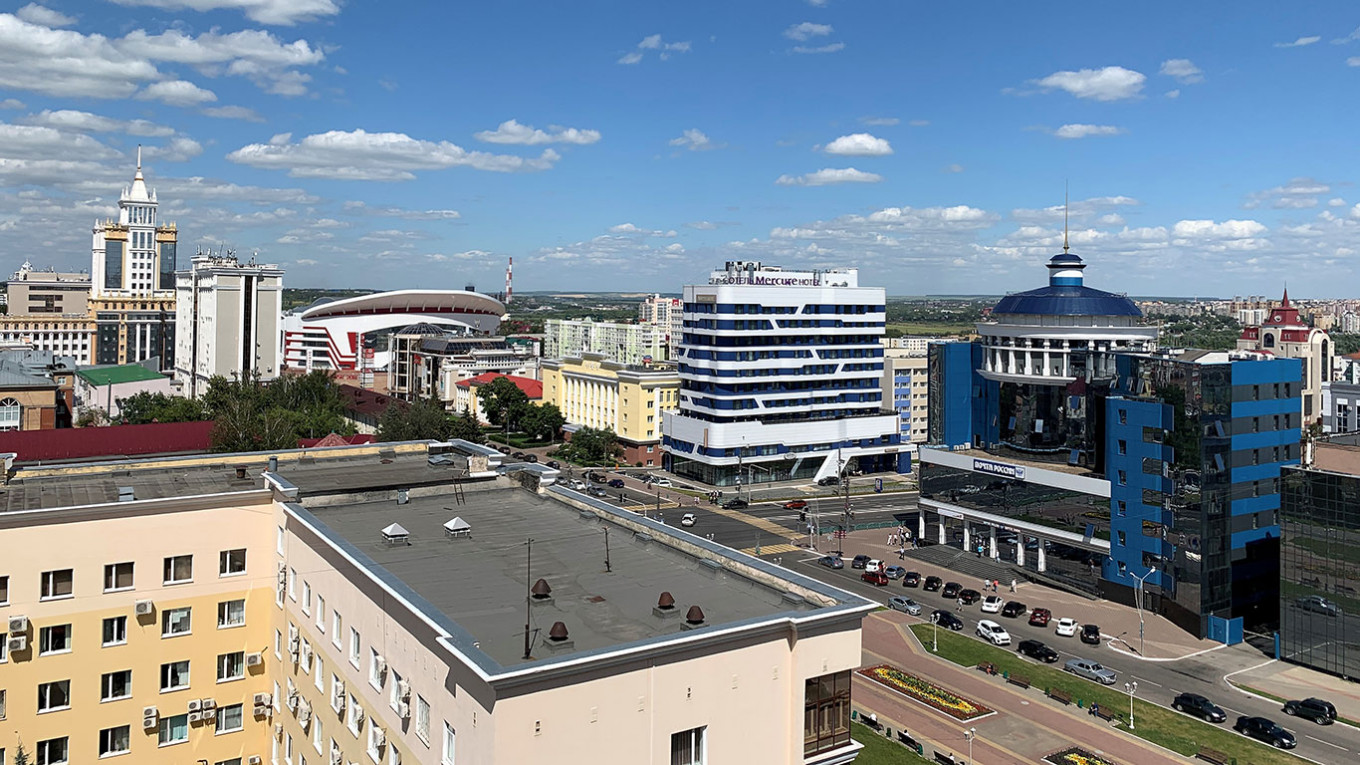
But in a poll United Russia is certain to win, and in a city where many small business owners say they are on first-name terms with local politicians and work closely with state bureaucracy, talk of protest votes or anger at the authorities is not widespread.
Unlike Groshev, many have a sense that they emerged from the pandemic relatively unscathed, at least compared to their counterparts in Russia’s larger cities.
Low income
“In Moscow, rents and salaries are much higher than here,” Nikolai Denisov, founder of the Pechka chain of bakeries told The Moscow Times. “In that sense, everything was easier in Saransk,” he added, even while recalling that his earnings crashed by 70% at one point last year.
At 31,000 rubles ($420) a month, Mordovia has one of the lowest average monthly salaries in the country — less than a third of what the typical Moscovite brings home.
That inequality — a traditional source of angst between Moscow and the regions — provided a soft landing for Russia’s poorer cities during the pandemic. While small business owners in richer Moscow may have scoffed at government-backed loans capped at $140 per employee, that kind of support made a real difference in Saransk, said Ruslan Mukhaev, local head of the state-connected Opora small business association.
“In Moscow and St. Petersburg, businesses have high revenues and large profits. But they also have substantial costs that can’t be reduced. When revenues fall, this really hits hard. In Saransk, profits are lower generally, but so is expenditure — therefore businesses have a natural safety cushion,” he told The Moscow Times.
Lower fixed costs allowed businesses like Denisov’s bakery chain and Kechin’s barbershops to dip into, but not exhaust, accumulated reserves, and then bounce back once Russia’s short and solitary lockdown ended, they said. Both opened new premises last year and profits have surpassed pre-coronavirus levels.

That Saransk’s entrepreneurs weathered the coronavirus better than others is also borne out by the numbers. Small businesses in Mordovia reported an average 62% jump in profits last year, according to data from Russia’s tax service.
Moreover, the hard-hit hospitality sector, including the likes of Groshev’s struggling bar, makes up less than 1% of the regional economy, which is dominated by industries that saw significant state support during the pandemic, such as agriculture, manufacturing and construction.
While those factors could limit discontent among entrepreneurs in Saransk, that doesn’t guarantee United Russia an easy ride. Business owners are still one of the cohorts least likely to vote for the ruling party, polls show.
Underlying problems
“In general, entrepreneurs have a more independent mindset and a more critical mood,” said Denis Volkov, director of the independent Levada Center pollster.
“The pandemic has had a big impact on them. Small businesses owners frequently talk about going bankrupt, a sharp fall in income and that there was either no help from the government or that it was insufficient,” he added.
The recovery from the pandemic could prove even trickier for poor cities like Saransk to navigate than the crisis itself. As the national economy bounces back, long-standing weaknesses that provided a safety net could return to the fore.
“The worst part of the business climate in the city is the low incomes,” said bakery owner Denisov, who has noticed a sharp rise in costs this year, but fears price hikes could deter his less well-off customers.
Inflation generally hits poorer communities harder, economists say. In Russia it also puts a squeeze on businesses caught between rising costs for their ingredients and materials, customers who are poorer now than a decade ago and political pressure not to hike prices.
Nationwide, five-year-high inflation is causing problems for United Russia’s election campaign. Rising prices are cited as one of Russian voters’ top concerns ahead of the polls, pushing the party’s approval ratings toward an all-time low.
But in Saransk, voters and business owners are showing their dissatisfaction with low living standards with their feet rather than the ballot box.
The number of active businesses in the city has fallen 13% in the last four years, and the wider Mordovia region is among the leaders for outward migration, as young people flock not only to Moscow and St. Petersburg but also closer cities with better prospects such as Samara, Kazan and Nizhny Novgorod.
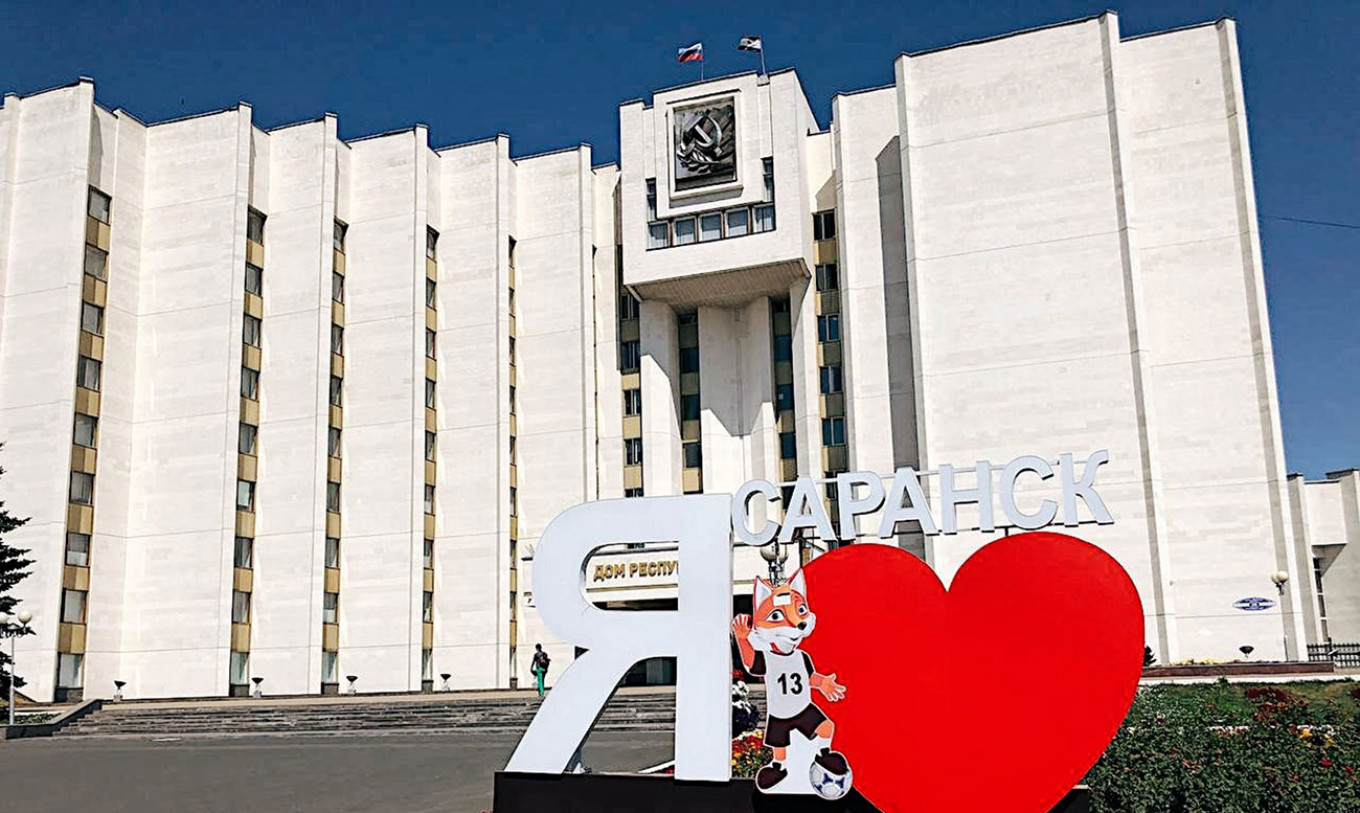
Even if a groundswell of discontent erupted among the region’s entrepreneurs at the polls, the electoral impact this year would be minimal, as less than 10% of those in the region work in a small or medium-sized company.
And in a part of Russia where electoral support for the Kremlin has comfortably surpassed 80% in every nationwide vote — presidential and parliamentary — since 2003, there is a feeling of routine about this month’s ballot, even among the disgruntled.
“I plan to vote,” said bar owner Groshov, who nearly saw his business wiped out by the lack of support during the pandemic.
“But I haven’t decided who for. I need to understand if there’s any real alternative.”
A Message from The Moscow Times:
Dear readers,
We are facing unprecedented challenges. Russia's Prosecutor General's Office has designated The Moscow Times as an "undesirable" organization, criminalizing our work and putting our staff at risk of prosecution. This follows our earlier unjust labeling as a "foreign agent."
These actions are direct attempts to silence independent journalism in Russia. The authorities claim our work "discredits the decisions of the Russian leadership." We see things differently: we strive to provide accurate, unbiased reporting on Russia.
We, the journalists of The Moscow Times, refuse to be silenced. But to continue our work, we need your help.
Your support, no matter how small, makes a world of difference. If you can, please support us monthly starting from just $2. It's quick to set up, and every contribution makes a significant impact.
By supporting The Moscow Times, you're defending open, independent journalism in the face of repression. Thank you for standing with us.
Remind me later.



